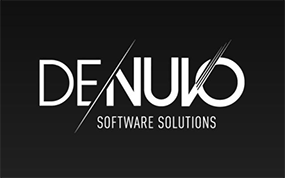
The times when the anti-piracy protection of Denuvo games was considered absolutely reliable and impenetrable remained in the past. The first news about the hack Denuvo appeared in December 2014, and since then, together, hackers from around the world have only improved the hacking technique. As a result, so far Denuvo is not worth talking about any reliability.
Recently, the protection of Denuvo is increasingly broken open within 24 hours (!) After the game is released. This
happened repeatedly . This week, another victim was the game
South Park: The Fractured but Whole , which "opened" within 24 hours. Last week, for the same time,
Middle Earth: Shadow of War was hacked, and last month, cracks for
Total War: Warhammer 2 and
FIFA 18 were released on the day of release. That is, publishers do not receive virtually any benefit from this protection, but only incur costs, paying royalties to Denuvo for using its technology.
It seems that the protection of games in the current version is ineffective. An indirect confirmation of this is the story of
The Evil Within 2 , which allegedly
used Denuvo to protect copies issued before the release, but then the official version was released
without this protection .
At the time of its appearance more than three years ago, anti-piracy protection technology from the Austrian company Denuvo Software Solutions GmbH was positioned as the most advanced and reliable. It protects executable files from reverse engineering, debugging, and modification. Unlike traditional DRM systems, Denuvo Anti-Tamper technology does not have specific flaws: it does not require constant online, does not impose any special restrictions on the number of activations of the equipment and allows you to play on any device where it was downloaded and installed.
The first crack for a game protected by Denuvo Anti-Tamper (DAT) was released in early 2015. It was a crack to the game
Dragon Age: Inquisition , which appeared about a month after the release.
Although the DAT technology has lost the halo of "impenetrability", publishers were quite happy with the term per month, because the lion's share of the game’s sales falls on the first 30 days. However, further the case on the analysis of the protection of DAT has stalled. Soon there were reports that the Chinese hackers refused to hack the AAA title
Just Cause 3 because of too much difficulty. There were concerns that Denuvo technology is really too complicated for reverse engineering.
The situation changed in the second half of 2016, when another hacker group CONSPIR4CY (CPY) posted Denuvo hacking into the network in the form of a crack for the game
Rise of the Tomb Raider , which no longer requires Steam at all. Although it was done five months after the release, it was a turning point. Hackers managed to still pick up the keys to protection.
In just a few days, CPY hacked the protection of the game
Inside in the same way, but only six weeks have passed since the release. Further games fell massively:
Doom ,
Mirror's Edge Catalyst ,
Deus Ex: Mankind Divided ,
Watch Dogs 2 and so on. And on January 29, 2017, a control shot in the head of Denuvo took place. Just five days after the official release of the game
Resident Evil 7: Biohazard , the CPY group
posted the hacked version on the top website - and in a matter of hours it sold all the popular torrent trackers.
In the summer of 2017, many Denuvo DRM-protected games were hacked for four to nine days, including
Sonic Mania ,
Tekken 7, and
Prey . It would seem that four days is a very short time, but even it matters to the publisher, because during these four days he manages to sell a significant number of copies of the game in the wake of the peak of its popularity. If the crack goes out in less than a day, then the mass audience is already lost.
In such a situation, publishers have to look for another way out. For example, concentrate only on gaming consoles, where protection is more reliable. Or come up with a model of monetization, where a copy of the game is distributed free of charge, and the publisher makes money by selling virtual goods and weapons within the game. For example, Activision recently
patented a pay-to-win model . It involves various ways to encourage players to make cash transactions in the game. Here is how it is described in the patent: “For example, if a player bought a certain weapon, then the microtransaction engine can pick up a game session for him in which this weapon is highly efficient. This gives the player the impression that a certain weapon was a good purchase. ” As the game developers suggest, such a system “will encourage players to make new purchases in the future to achieve the same results in the game.”
Representatives of Activision
emphasized that this promising technology is not yet used in any game, including Destiny 2.
However, the inefficiency of Denuvo at the moment does not mean that it will always be like this. Developers will certainly try to update the DRM protection methods. There are rumors in the community of crackers that the company is preparing to release a kind of “5th version” of protection that may appear from day to day.